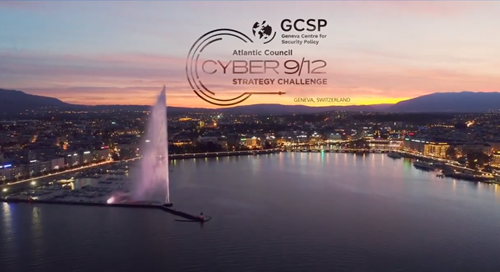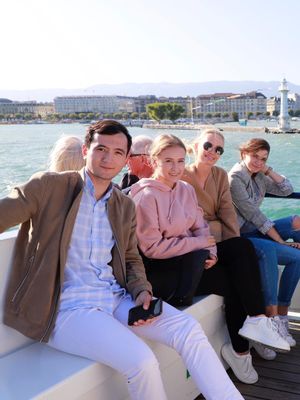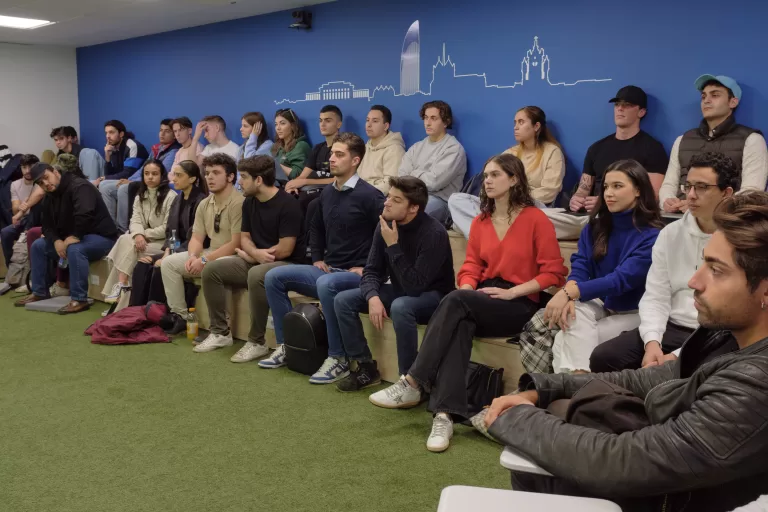Cyber 9/12 Strategy Challenge 2020
In Geneva our Managing Innovation class was recently asked to answer the question: How would you foster an innovative organizational culture inside your organization?
Cyber policy experts battle to solve a simulated cybersecurity crisis in Geneva

A cybersecurity crisis is no game but for the last six years, the Geneva Centre for Security Policy (GCSP) has created a simulated cybersecurity event as a learning opportunity for students from a wide range of academic disciplines from Europe, the US and beyond. Undergraduate, graduate, professional, or law students had a unique opportunity to interact with expert mentors and high-level cyber professionals while developing valuable skills in policy analysis and presentation.
The competition helps develop a deeper understanding of the policy challenges associated with an escalating cyber incident and troubleshooting potential cyber conflict. Part-interactive learning experience and part-competitive scenario exercise, it challenges teams to respond to a realistic, evolving cybersecurity incident and analyze the threats posed to national, international, and private sector interests.
Geneva students worked together to solve the crisis
A team from Geneva Business School along with many other universities from the USA, Sweden, Hungary, Switzerland, and the UK, participated. The 6th European Cyber 9/12 Strategic Challenge took place in Geneva, Switzerland from 2-3 July, 2020.
A team of four students led by Professor Michele Caracciolo entered the Cyber 9/12 Strategy Challenge under the team name, The Wallace Clan. Fernanda Fey (BIM), Marc Roig (BIM), Varvara Pastushnaya (BIM), and Alasdair McGregor (MBA) came together to write a 500-word policy brief about a scenario involving a breach of cybersecurity in France.
Competitors develop recommendations for the GCSP, outlining individual national approaches and a collective crisis management plan, taking into consideration the capabilities, policies, and governance structures of NATO, the EU, and individual nations. The competition fosters a culture of cooperation and provides the chance of a better understanding of these organizations and their member states in responding to cyber incidents.
Project-based learning in Practice
The practical approach to this competition is a valuable experience for our students and offers the rare opportunity to network, learn in an open-innovation setting, and develop their problem-solving skills all at the same time. Students work in a small team with a tight deadline on a topic completely outside of their comfort zone. They competed against a diverse array of students from technical universities from all over the world.
An esteemed panel of Judges included Nicholas Tinguely, Director of Cyber Security at KPMG, US Ambassador in Geneva, Ambassador Andrew Bremberg, and Chelsey Slack, Deputy Head of Cyber Defence for NATO.
All teams were required to communicate via Zoom meetings and were given around a week to prepare. Out of 20 teams participating only 5 made it through to the second round of presentations of their policies after the preliminary 10-minute hearings. Congratulations must go to the winning team from ETH Zurich, PromETHeus in Switzerland. Watch the video from last year’s entrants…
Read more about the 2020 competition and the case study scenario here.
Want to know more about our project-based learning style and professionally active faculty?
Ask us a question!






